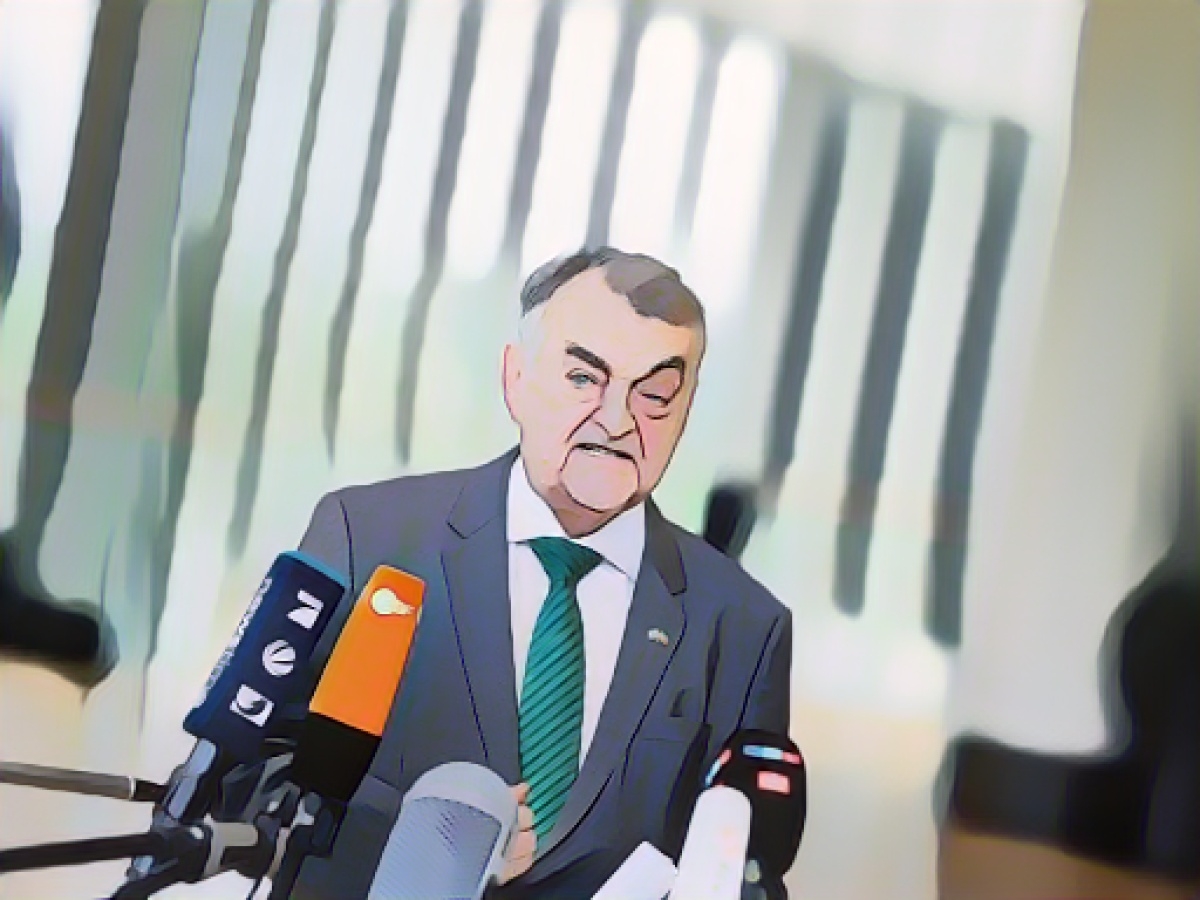Reul skeptical about demands for assembly bans
North Rhine-Westphalia's Interior Minister Herbert Reul has rejected calls for bans in the debate about Islamist statements at pro-Palestinian demonstrations. "I warn everyone to fight in the wrong place - i.e. on the subject of banning demonstrations," he told the Frankfurter Allgemeine Zeitung. This only works in rare cases. Reul is thus taking a stand against Federal Interior Minister Nancy Faeser (SPD), but also against voices from his own party. NRW wants to impose stricter conditions on demonstrations instead.
"A ban on extremist demonstrations: I'll go along with that if it's possible," Reul told the FAZ newspaper. But it is usually not possible because the right of assembly and the right to freedom of expression are important constitutional rights. "Even the absurd, abstruse and difficult to tolerate are covered by this," said the Interior Minister. The limit is where laws are violated, someone is insulted or denigrated, the Holocaust or Israel's right to exist are denied - none of this appears to have been the case at the demonstration in Essen.
According to the police, Islamists at last Friday's demonstration with a good 3,000 participants had apparently deliberately circumvented the authorities' requirements by using slightly modified flags and symbols that were no longer subject to prohibition orders. One poster, for example, advertised the caliphate as "the solution", said Reul. "That is an expression of religious opinion that cannot simply be banned." He was convinced that a lot could be controlled with "very clearly formulated conditions". "German as a demonstration language is one of the considerations that we are currently having intensively reviewed," he said.
"Ms. Faeser's rhetoric makes no sense whatsoever," said Reul. "As Federal Minister of the Interior, she should know better and rather think about what concrete contribution she can make." Faeser had said that those who propagate crimes and hatred cannot invoke the protection of freedom of opinion. The constitutional state must consistently enforce this line: with assembly bans if there is a threat of anti-Semitic and Islamist incitement and tough police intervention. Serap Güler (CDU) had demanded: "Events at which anti-Semitic and anti-Israeli slogans are to be expected should be banned."
Despite Reul's agreement in principle for banning extremist demonstrations, he emphasized the importance of constitutional rights, such as the right to assembly and freedom of expression. He stated that even extreme or difficult to tolerate opinions are protected under these rights, unless laws are violated or someone is insulted or denigrated. During last week's demonstration in Essen, Islamists reportedly circumvented authorities' requirements, but Reul considered banning slogans advocating for a caliphate as an expression of religious opinion that might not be straightforwardly banned.
Source: www.dpa.com








